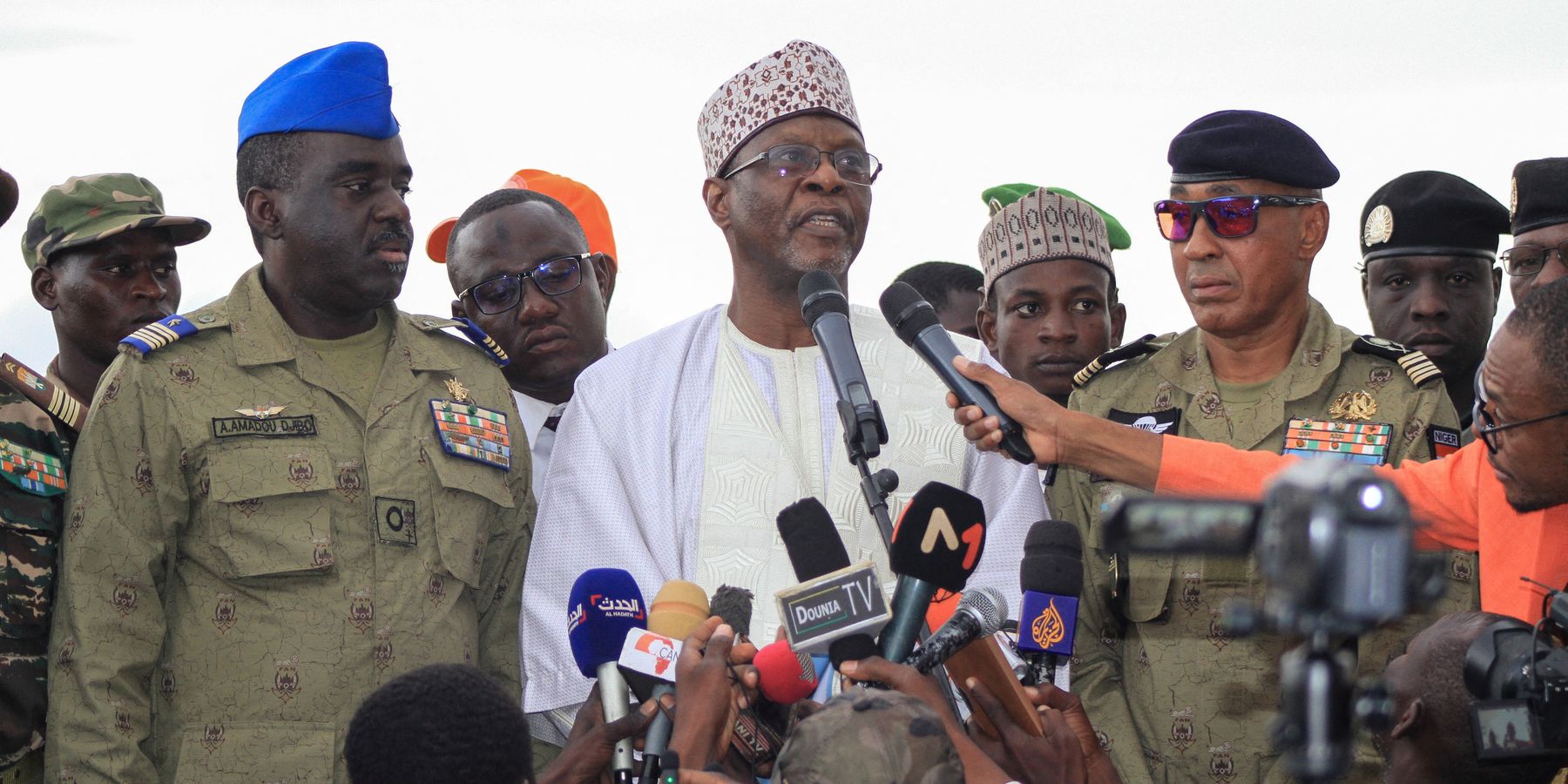On October 10, the State Department announced that it had finally determined that the July 26 military takeover in Niger constituted a coup.
The State Department further said that in accordance with Section 7008 of the annual State, Foreign Operations and Related Programs appropriations legislation, the United States would be suspending some $200 in military and development aid — while preserving “our life-saving humanitarian, food, and health assistance to benefit the people of Niger.” These suspensions confirm and extend an initial pause in some assistance in the immediate wake of the coup.
This legal determination and the ensuing aid suspension were the correct decisions. The suspension will hopefully send the message that Washington will not, at least in the case of Niger, ruthlessly prioritize exaggerated “strategic interests” over the immediate choice of whether to treat coup-makers as legitimate. That message is important both in Africa, where Washington was already grossly inconsistent in responding to a recent wave of coups, and beyond.
The “strategic interests” in question are summarized in the New York Times’ reporting on the Biden administration’s internal debate about a coup determination for Niger: “U.S. officials worry it could also reduce America’s leverage over Niger’s future, jeopardize military operations against militants in the region, invite Russian influence and exacerbate humanitarian suffering in one of the world’s poorest countries.”
Taking the arguments one by one, the coup itself shows how limited American “leverage” was before the coup, and there is little reason to expect that normalizing relations with the junta would generate meaningful leverage beyond continued military training and expenditures. U.S. allies that receive a pass on coups, notably Egypt, have not proven amenable to making serious reforms on democracy or human rights.
Second, in terms of counterterrorism, I am unaware of measurable, publicly available evidence showing that America’s vast counterterrorism expenditures and training missions in Niger or the wider Sahel have produced tangible security benefits for ordinary people. American surveillance and logistical support assisted in French-led missions against top jihadist leaders, but violence worsened anyway. And now the French have largely been expelled from the core zone of jihadist activity in the region, the central Sahelian countries of Mali, Niger, and Burkina Faso, so the prospects for an effective American support role are less.
One can always argue that the situation would be worse without the American presence, but such counterfactuals are difficult to prove or disprove.
Third, giving juntas a pass doesn’t necessarily prevent them from turning to Russia. France attempted to hang on to its influence in Mali after the coup there in 2020 (the first of the recent wave of coups), but found its relations with the junta degrading after the soldiers’ intentions to remain in power became more manifest through a “follow-on coup” in 2021.
More broadly, the U.S. does not appear particularly skilled at playing great power politics in Africa writ large. Washington relies on senior officials’ visits and a liberal dose of scolding in its attempts to woo African governments, and even long-time allies often respond by keeping the door open to the U.S., Russia, and China all at once. Moreover, fears of hypothetical Russian influence shouldn’t be a pretext for compromising on what are supposed to be core American values.
Fourth, given that there are carve-outs for humanitarian aid under Section 7008, it does not make sense that suspending military assistance would worsen humanitarian conditions in Niger, which are certainly dire. I have argued previously, in fact, that focusing on the delivery of humanitarian assistance across the entire Sahel would make the U.S. role there clearer and more straightforward, both to the people of the region and within Washington.
One could make a complex and circuitous argument that U.S. counterterrorism strikes or U.S. support for other militaries’ counterterrorism ventures are essential to ultimately resolving the conflict and therefore improving Sahelians’ humanitarian conditions. Yet this argument was not borne out over the past decade when, as noted above, insecurity (and displacement) surged despite a significant U.S. military presence.
Now that the coup declaration has been made, the Biden administration should avoid the temptations of either giving Niger a waiver (a possibility under the Section 7008 language) or accepting a flawed election as sufficient to allow the resumption of military assistance. Next year may see the beginning of a new phase in the region’s pattern of military government, as promises to hold elections come due in Mali, Burkina Faso, and Chad. The timetable has already begun to slip in Mali, which in itself should draw a U.S. rebuke. Whenever elections do occur, moreover, there is a high likelihood that the votes will proceed on terms dictated by juntas, who may either run their own members or attempt to use civilians as pawns.
The U.S. should scrutinize those elections carefully. Indeed, Western powers’ decision to overlook gross electoral intimidation and tampering in Sahelian countries was among the factors that contributed to the recent coups, which took advantage of civilian politicians’ weak legitimacy. The coup declaration in Niger should be the beginning and not the end, then, of a less compromising stance from Washington vis-à-vis both coups themselves and coup-makers’ political machinations in the Sahel.
- What will happen to US troops stationed in Niger if the region explodes? ›
- Niger was the 'model of stability' in Africa. So what happened? ›
- What Washington got wrong about Niger and Russia | Responsible Statecraft ›
















